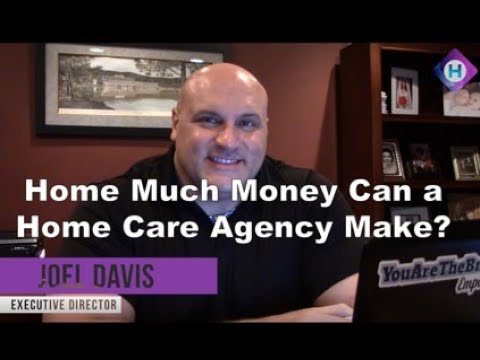How to Cancel Group Health Insurance Without Losing Coverage
Contents
You may be able to cancel your group health insurance without losing your coverage if you follow these best practices.
Checkout this video:
Cancelling Your Group Health Insurance
If you are leaving your job, you may be wondering if you can cancel your group health insurance without losing coverage. The answer is yes, but there are a few things you need to know first. In this article, we will go over everything you need to know about cancelling your group health insurance
Notify your employer
If you have group health insurance through your employer, you will need to notify your employer that you are cancelling your coverage. Your employer will then need to remove you from their group health insurance plan.
Check if you’re eligible for COBRA
COBRA is a law that allows you to keep your group health insurance for a limited time (18 months for most people) after you leave your job. If you qualify, you pay the entire premium yourself (plus a 2% administrative fee).
To be eligible, you must have been enrolled in your employer’s health insurance plan when you were working. You also have to qualify for COBRA within 60 days of leaving your job.
If you’re not sure if you’re eligible, contact your former employer or the human resources department. They should be able to tell you if your company offers COBRA and how to sign up.
Find out if you qualify for a Special Enrollment Period
If you have a life event that makes you ineligible for your group health insurance, you may qualify for a Special Enrollment Period (SEP). This means you can shop for a new plan outside of the regular Open Enrollment period.
In order to qualify, you must have had group health insurance coverage that was terminated within the last 60 days, and you must not currently have other health insurance coverage.
Examples of life events that may make you eligible for an SEP include:
-Losing your job
-Getting divorced or married
-Turning 26 and no longer being eligible for a parent’s plan
-Moving to a new state
Losing Your Group Health Insurance
If you lose your job, you may also lose your group health insurance. This can be a big problem, especially if you have a family. Here are some things you can do to keep your family covered.
Compare your options
If you’re leaving your job, you may be wondering what will happen to your health insurance. If you have a group health insurance plan through your employer, you may be able to continue your coverage through a program called COBRA. COBRA stands for the Consolidated Omnibus Budget Reconciliation Act, and it allows you to continue your coverage for up to 18 months after you leave your job.
There are some disadvantages to COBRA coverage. First, it can be expensive. You’ll have to pay the full premium yourself, plus an administrative fee of up to 2%. Second, COBRA coverage is only available for a limited time. Once your 18 months are up, you’ll have to find another health insurance plan.
If you’re healthy and looking for a less expensive option, you may want to consider a short-term health insurance plan. These plans are designed for people who are between jobs or waiting for their employer’s health insurance to start. Short-term plans typically last for 3-12 months and can be renewed for up to 36 months.
Consider a short-term health insurance plan
If you are leaving your job and losing your group health insurance, you may be able to purchase a short-term health insurance plan. These plans provide temporary coverage for a set period of time, typically 3 to 12 months. Short-term plans are not required to provide all of the essential health benefits required by the Affordable Care Act (ACA), so they may not be a good option if you have preexisting health conditions or need certain types of care, such as maternity care or mental health services. But if you are healthy and just need temporary coverage, a short-term plan may be a good option for you.
See if you qualify for a government health insurance program
If you lose your job, you may be able to get health insurance through a government program.
-If you’re younger than 26, you may be able to stay on your parents’ health insurance plan.
-If you’re over 26, you may be able to get coverage through Medicaid or the Children’s Health Insurance Program (CHIP).
-If you have a disability, you may be able to get coverage through Medicaid or Medicare.
To see if you qualify for a government health insurance program, contact your state’s Medicaid office or visit Healthcare.gov.
Other Things to Consider
When you cancel your group health insurance, you will lose your coverage. This means that you will have to find another way to pay for your health care. You may be able to get a new job that offers health insurance, or you may be able to purchase a health insurance policy on your own.
Check your prescriptions
Your current prescriptions may be covered under your spouse’s plan, but not your new one. Be sure to check with your pharmacy and your insurance company to see what will be covered and what will not. You may need to make some changes to the medications you are taking in order to stay covered.
Consider your mental health needs
Your physical health isn’t the only thing to consider when you’re choosing a health insurance plan. Your mental health needs are just as important.
According to the National Alliance on Mental Illness, one in five adults in the United States experiences mental illness in a given year. That means that if you’re not considering your mental health needs when you’re choosing a health insurance plan, you could be leaving yourself vulnerable to expensive out-of-pocket costs.
There are a few things to look for when you’re considering your mental health needs:
-Make sure that your chosen plan covers mental health services. Some plans exclude coverage for mental health services, so this is an important thing to check.
-Find out whether your chosen provider has experience treating people with your specific condition. There are different types of providers (psychiatrists, psychologists, social workers, etc.), and not all providers are experienced in treating all conditions. You want to make sure that you’re seeing someone who can help you manage your condition effectively.
-Check what your copayments will be for mental health services. Some plans have high copayments for mental health services, which can make treatment unaffordable. You want to make sure that you can afford the treatments you need.
-Find out whether there are any limits on the number of visits you can have with a mental health provider. Some plans limit the number of visits or impose other restrictions on coverage, so this is something to check before you enroll in a plan.
If you don’t think that your current plan is meeting your needs, it may be time to consider switching to a new one. Cancelling your current plan mid-year is generally not advisable, as it may result in a lapse in coverage, but if you’re considering changing plans anyway, it may be worth looking into new options that better meet your needs.
Review your options for dental and vision coverage
If you have dental and vision coverage through your employer, you may want to consider keeping that coverage even if you cancel your health insurance. Dental and vision coverage is not required under the Affordable Care Act, so it is not offered through the Health Insurance Marketplace You may be able to purchase a standalone dental or vision plan, but it is important to compare the costs and benefits of those plans before you make a decision.







